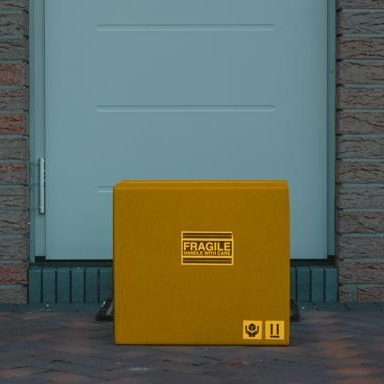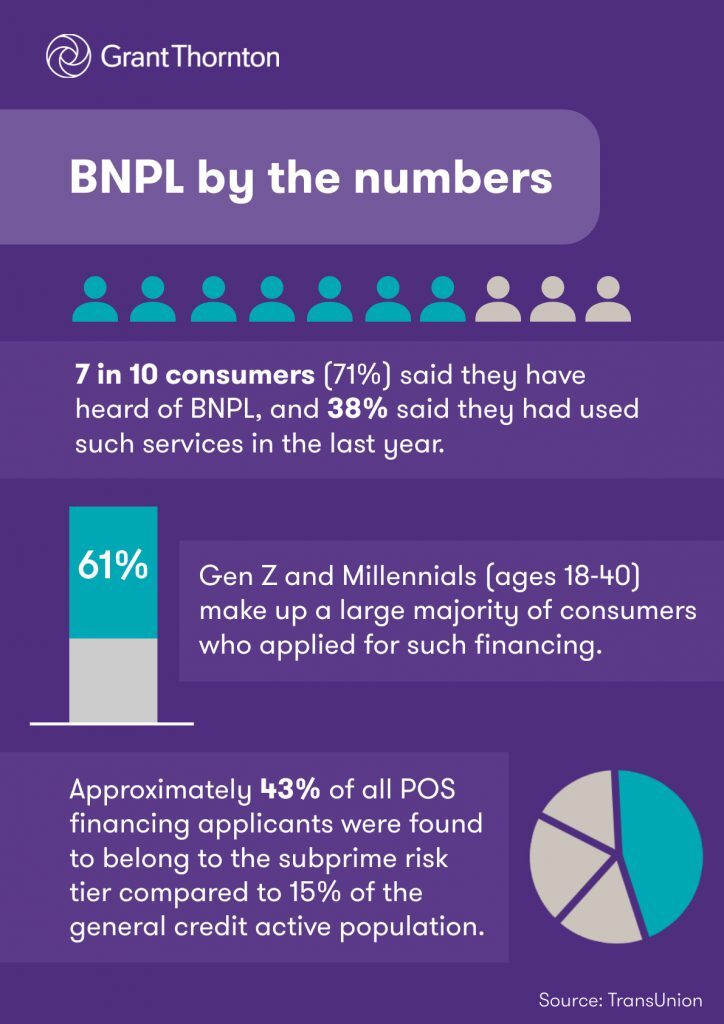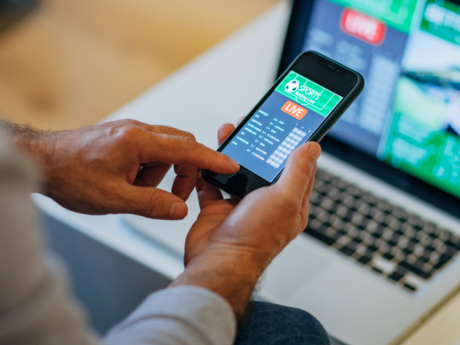Buy now, pay later? The real cost of buy now, pay later programs

If you shop online, you’ve likely come across a “Buy Now, Pay Later” option on the checkout page. Though phrases like “pay in four equal payments,” “interest-free financing,” and “no fees or credit checks” may be appealing, are these programs too good to be true? Well, it can be a slippery slope. We’ve broken down the information you need to know before you buy now and pay later.
What is Buy Now, Pay Later?
As the name suggests, Buy Now, Pay Later (BNPL) is a type of short-term financing that allows consumers to make purchases and pay for them in installments. Also referred to as "point of sale installment loans," BNPL options are becoming increasingly popular for online shoppers.
How does BNPL work?
Though each provider has its own terms and conditions, BNPL programs often operate along the following lines:
- At participating online retailers, consumers have the option to select either an “alternate payment method” or a BNPL option at checkout.
- The BNPL will ask for some relatively basic information, such as your name and contact details, and will let you know (usually within seconds) how much you’re approved to spend.
- The shopper will then be prompted to provide their payment information—most BNPL options allow for payments via debit, credit, or Apple or Google Pay—and the shopper can select their installment schedule (most services require a payment every two weeks).
- The shopper is required to pay the first installment at checkout. Once checkout is complete, the order will be processed and sent to the customer.
- Installment payments will be deducted from the provided payment method (i,e. your credit card), as stated in the installment agreement.
How does BNPL differ from paying with a credit card?
Although they both delay payments for the consumer, BNPL differs from credit card purchases because you’re required to pay the full balance on the agreed-upon installation period (I.e., four bi-weekly payments of $64). When you use a credit card to pay for items, you're only required to make the minimum payment due on the card each month, and interest accrues on the remaining balance until you pay it off in full.
How do online BNPL services differ from traditional in-store financing?
In-store financing options for large ticket items like furniture, appliances, and even electronics have been around for a while; however, the introduction of online BNPL services has increased the availability of financing options on everyday purchases. The main difference between financing a dining set from a local furniture store or loan company and using a BNPL service to buy the latest pair of sneakers is the amount of interest associated with the purchase agreement. Many online BNPL lenders offer interest-free installments as long as you make your payments on time and in full. Financing on larger ticket items sometimes comes with interest on top of the monthly payments, which means you pay more overtime for the product than you would be buying it outright, and you may face greater charges or fees if you miss payments.
Sounds great, but are Buy Now, Pay Later programs too good to be true?
While BNPL programs may offer some benefits, whether you should use them depends on the offer and your financial situation. If you’re planning to use a BNPL for an upcoming purchase, you need to be sure you can afford the installments or risk being hit with fees from the payment service. You could also incur fees from your bank or credit card, whether for interest or going into an overdraft. Additionally, if you default or cannot afford to make payments, your credit score may be negatively impacted.
BNPL options may also convince you to add more to your online shopping cart than you otherwise would. While the allure of buying makeup, clothing, sporting goods, or home décor and paying it off in smaller increments may be appealing, you should consider if you really need those items and at what cost. A good rule of thumb is that if you can’t afford to pay for these items now… you can’t afford them. If you need to make a purchase and aren’t in a rush to do so, hold off on buying the item and save up for it over time instead.

Transcript: BNPL by the numbers
- Seven in 10 consumers (71%) said they have heard of BNPL, and 38% said they had used such services in the last year.
- Gen Z and Millennials (ages 18-40) make up a large majority of consumers who applied for such financing (61%).
- Approximately 43% of all POS financing applicants were found to belong to the subprime risk tier compared to 15% of the general credit active population.
Source: TransUnion
The bottom line
Buy Now, Pay Later programs may be helpful in the event of an emergency, such as your phone or oven breaking; however, before you use one, make sure you understand the terms and conditions, can make the payments on time, and, importantly, are using them responsibly.
If you find yourself in a situation where you’re struggling to pay back your debt, we're here to help! At Grant Thornton, we offer judgment-free, consultations to help you find the best path to debt freedom. Call today at 1-844-4GT-DEBT and start your path to a brighter financial future!
Take the first step to debt freedom
Speak to one of our debt solutions professionals during a free, no-obligation consultation.
Related articles

Caught in the odds: Understanding gambling debt and how to get help

How can a Licensed Insolvency Trustee help with my debt?

Do you owe CERB debt? Here's what Canadians need to know about repayment

How much debt is normal in your province?

Can I file for bankruptcy if I own a house?

What Canada’s 2025 federal budget could mean for your taxes—and your wallet

4 common investment scams and how to avoid them
Looking for assurance, tax, and business advisory services? Visit Doane Grant Thornton LLP.

Loading